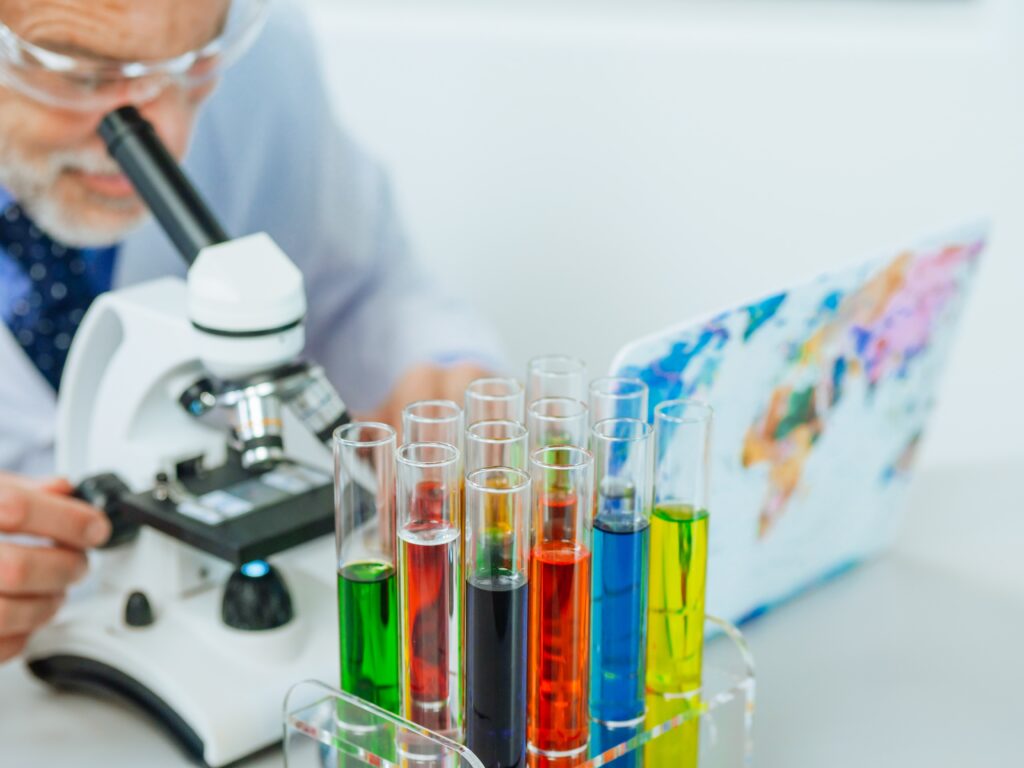Pharmaceutical and biotechnology companies make medicines, however the drugs produced by biotechnology firms are derived from living organisms, whereas the medicines produced by pharmaceutical companies typically are based on chemical substances. The creation of the term biopharma is a further complication. The term refers to firms that employ both chemical and biotechnology sources to support its medical study and research (R&D) initiatives. Biotech vs. Pharmaceuticals.
Table of Contents
Biotechnology
The most common products like wine and beer laundry detergent, beer and wine, and all other plastic-based products comprise all biotechnology products. Humans have used biotechnology from the beginning of time to breed animals as well as improve their agricultural practices. But in the current financial market, biotechnology firms constitute an industry segment called biotech. These companies study, develop and manufacture a broad range of commercial products but the majority focus on agricultural or medical applications.

Biotechnology firms make use of living organisms to create products or resolve issues. The identification and the sourcing of DNA has allowed the sector make significant leaps. The companies in this field have created pest-resistant plants made biofuels, such as alcohol, and have also developed genetic Cloning. There have also been significant product launches within biopharma medicines. The most commonly employed biotechnology medical devices recently released include:
- The AbbVie’s Humira uses it to manage psoriasis, arthritis as well as Crohn’s disease as well as other conditions. 2 Roche’s Rituxan can be used to slow cancerous growth different kinds of cancer. 3 Amgen/Pfizer’s Enbrel can be used to treat various immune-mediated diseases.
The most prominent U.S.-based biotechnology companies according to market capitalization in August 2021 include Johnson & Johnson, Pfizer, Eli Lilly, and Thermo Fisher Scientific. It is important to note that there is significant overlap between pharmaceutical and biotechnology firms. Johnson & Johnson, Pfizer as well as Eli Lilly are big forces within both industries. Recently biotechnology-related startups have emerged along with computer technology firms located in Silicon Valley. The goal of the majority is to make use of biotechnology techniques to create revolutionary drugs. The field is fast-growing and volatile. The biotechnology market in the world is predicted to grow to $2.44 trillion by 2028, as per Grand View Research.
Pharmaceuticals
A business, pharmaceutical companies study, develop and market drugs that are primarily derived from synthetic sources. Certain contemporary pharmaceutical companies have a long-standing tradition, for instance, Bayer AG, the German company that was founded by the inventor of aspirin in 1899.7 In 2021, the most prestigious pharmaceutical company in the world is Johnson & Johnson, followed by Roche and Pfizer.

The development of pharmaceutical products may take several years to be processed through stages of research and development before they are finally released available for sale. The lengthy R&D procedure is getting approval from FDA. Food and Drug Administration (FDA). The most prominent companies in this field have stable results, however this field continues to expand and new companies are popping up regularly.
Extra Considerations
In the eyes of the investor Biotech and pharmaceuticals are completely different. Analysts look at the amount that a business is spending on the research and development (R&D) in terms of proportional to sales to determine if it is comparable the performance of one company with another. Biotechnology companies typically have expensive operating expenses since they are engaged in development, research, and testing that take several years to finish. This could lead to an incredible breakthrough or total failure. The investors who own their shares are riding along upwards or downwards.
Additionally, the industry could face obstacles in the development of new products when the product or research is controversial. For instance, a number of nations ban genetically modified crops as well as products. Biotech has been granted one benefit to offset its price disadvantage. Pharmaceutical companies typically have exclusive rights to develop and distribute their medicines over a period of five years, biotech has the ability to obtain patent protection for 12 years.
The major pharmaceutical companies, for comparison they have an ongoing flow of revenue from their current products, while also maintaining the research and development process to improve existing products, or inventing new ones. Pharma companies strive to maintain an ongoing stream of new drugs in different levels of production. The process of developing the new drug could take as long as 15 years before it is completed.
The FDA will require all new drugs to go through a series of testing that, is in and of itself, can be up to eight years. Even when a company introduces an innovative medicine to market, that doesn’t guarantee that it will be able to gain medical approval and usage.
The Investor Viewpoint
Pharmaceutical and biotech companies have to go through a lengthy and costly process that, if successful, can result in profitable products. But, the process can be very unpredictable, and can be a problem for small biotech companies that can be disastrous and irreparable. Pharmaceutical companies, because of their size and broad revenues, are usually resilient to challenges and fail. The competition is more important and expensive for pharmaceutical companies, resulting in an urgent need for robust pipelines and other non-organic revenue sources.